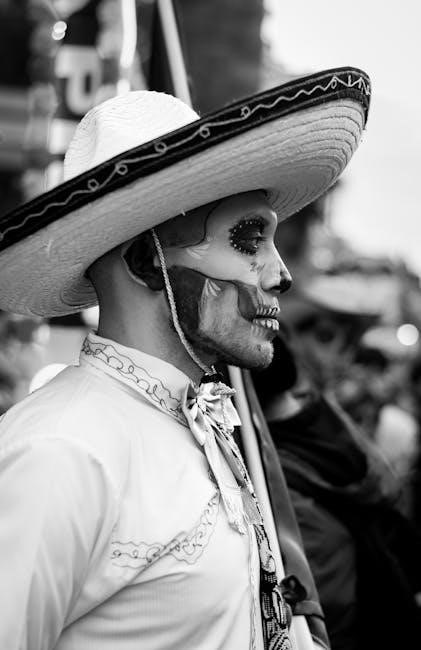Viktor Frankl’s El Hombre en Busca de Sentido explores the psychological and philosophical insights gained from his harrowing experiences in Nazi concentration camps, offering a profound exploration of human resilience, the search for meaning, and the development of logotherapy, a revolutionary approach to understanding life’s purpose.
Overview of the Book
El Hombre en Busca de Sentido is a memoir and psychological exploration by Viktor Frankl, detailing his experiences in Nazi concentration camps during World War II. The book is divided into two parts: the first recounts Frankl’s harrowing life in the camps, while the second introduces logotherapy, his groundbreaking approach to psychology. Frankl shares how even in the most brutal conditions, individuals can find meaning and purpose. He explores themes of hope, resilience, and the human search for significance, offering insights into the psychological and philosophical lessons he learned. The book is both a personal account of survival and a universal guide to understanding life’s challenges, making it a profound and enduring work of literature.
Importance of the Topic
El Hombre en Busca de Sentido holds profound significance as it bridges personal survival narratives with universal psychological insights. Frankl’s experiences in Nazi concentration camps provide a unique lens to explore human behavior under extreme duress, offering lessons on resilience and hope. The book’s emphasis on finding meaning in suffering resonates across cultures and generations, addressing fundamental existential questions. Its introduction of logotherapy has influenced psychology and philosophy, providing a framework to cope with life’s challenges. The topic’s relevance lies in its ability to inspire personal reflection and growth, making it a vital read for anyone grappling with life’s purpose or seeking to understand the human condition in the face of adversity.

Author Background
Viktor Frankl was a Holocaust survivor, psychiatrist, and founder of logotherapy. Born in 1905, he survived Nazi concentration camps, later becoming a renowned author and professor.
Biography of Viktor Frankl
Viktor Frankl was a Holocaust survivor, psychiatrist, and philosopher. Born in Vienna in 1905, he studied medicine and psychology, focusing on suicide prevention and mental health. During World War II, Frankl was imprisoned in Nazi concentration camps, including Auschwitz, where he lost his parents and wife. His experiences there shaped his philosophy of logotherapy, which emphasizes finding meaning in suffering. After the war, Frankl wrote El Hombre en Busca de Sentido, detailing his camp experiences and psychological insights. He became a leading voice in existential psychology, teaching at universities worldwide and advocating for the search for life’s purpose. His work remains influential, offering hope and resilience to millions.
Frankl’s Experience in Nazi Concentration Camps
Viktor Frankl was imprisoned in Nazi concentration camps during World War II, enduring unimaginable suffering. At Auschwitz, he witnessed the brutality of the Holocaust firsthand, losing his parents and wife. Despite the horrors, Frankl observed the psychological and emotional responses of himself and fellow prisoners. He identified three phases of reactions to traumatic events: initial shock, adaptation to camp life, and the struggle to cope after liberation. Frankl’s experiences deeply shaped his philosophy of logotherapy, emphasizing the search for meaning even in the most harrowing conditions. His time in the camps became the foundation for his book, offering a profound exploration of resilience, hope, and the human spirit’s capacity to find purpose amidst despair.
El Hombre en Busca de Sentido is divided into two parts: Frankl’s harrowing concentration camp experiences and his logotherapy concepts, exploring life’s meaning and suffering.

Part 1: A Psychologist in a Concentration Camp
In the first part of El Hombre en Busca de Sentido, Viktor Frankl recounts his harrowing experiences as a psychologist imprisoned in Nazi concentration camps during World War II. He describes the brutal conditions, psychological turmoil, and emotional struggles faced by prisoners, offering a unique perspective on human behavior under extreme duress. Frankl observes how individuals coped with the unimaginable suffering, highlighting the psychological phases of shock, adaptation, and eventual liberation. His observations led to profound insights into the human spirit, revealing how even in the darkest circumstances, people sought meaning and purpose. This part of the book lays the foundation for Frankl’s theory of logotherapy, emphasizing the search for life’s significance as a primary human drive.
Part 2: Basic Concepts of Logotherapy
In the second part of El Hombre en Busca de Sentido, Viktor Frankl introduces the core principles of logotherapy, a psychotherapeutic approach he developed. Logotherapy focuses on helping individuals find meaning and purpose in life, even in the face of suffering. Frankl posits that the primary human drive is not pleasure, as Freud suggested, but the pursuit of meaning. He outlines three key concepts: the meaning of life, the will to meaning, and the meaning of suffering. Frankl argues that life has inherent meaning under all circumstances, and even in pain, individuals can find purpose. This section provides a theoretical foundation for understanding logotherapy, emphasizing its relevance beyond clinical settings and its universal application to the human condition.

Key Concepts
The book introduces logotherapy, emphasizing the search for life’s meaning and purpose; It explores suffering’s role in finding significance and the three phases of reactions to trauma.
The Search for Meaning
At the core of Viktor Frankl’s philosophy is the belief that life’s primary purpose is to find meaning. Frankl argues that even in the most brutal conditions, such as concentration camps, individuals can discover meaning through three key ways: work, love, and suffering. He emphasizes that meaning is not something found passively but is an active pursuit. Frankl’s own experiences in the camps illustrate how maintaining hope and focusing on personal values can sustain the human spirit. This concept forms the foundation of logotherapy, which posits that the will to meaning is the driving force behind human behavior. Frankl’s insights challenge readers to reevaluate their approach to life’s challenges and to seek purpose even amidst adversity.
Logotherapy: Definition and Principles
Logotherapy, developed by Viktor Frankl, is a form of psychotherapy that focuses on helping individuals discover meaning in life. It is rooted in the belief that the primary human drive is the “will to meaning,” rather than pleasure or power. Frankl’s approach emphasizes three core principles: the uniqueness of each person, the inherent meaning of life, and the freedom to choose one’s attitude even in the face of suffering. Logotherapy encourages individuals to find purpose through work, love, and suffering, asserting that meaning can be derived from even the most challenging circumstances. Unlike traditional psychoanalysis, which often focuses on the past, logotherapy looks toward the future, guiding individuals to embrace responsibility and create a fulfilling existence. Frankl’s philosophy continues to inspire millions, offering a pathway to personal growth and resilience.

The Three Phases of Reactions to Traumatic Events
Viktor Frankl identifies three distinct phases of human reaction to traumatic events in El Hombre en Busca de Sentido. The first phase is the initial shock and denial upon entering a traumatic environment, where individuals struggle to comprehend their new reality. The second phase involves adaptation to the harsh conditions, where survival instincts dominate, and individuals find ways to cope with their circumstances. The final phase occurs after liberation, where survivors grapple with the emotional and psychological aftermath, often experiencing profound changes in their worldview. Frankl’s framework emphasizes the psychological resilience of the human spirit, highlighting how individuals can find meaning even in the midst of immense suffering. This insight remains a cornerstone of logotherapy and continues to inspire those navigating adversity.

Impact of the Book
El Hombre en Busca de Sentido has profoundly influenced modern thought, offering universal insights into suffering, meaning, and resilience, making it a timeless philosophical and cultural landmark.
Cultural and Philosophical Influence
Viktor Frankl’s El Hombre en Busca de Sentido has left an indelible mark on modern thought, resonating deeply across cultures and philosophies. Its exploration of meaning, suffering, and resilience has transcended borders, inspiring millions worldwide. The book introduced logotherapy, a groundbreaking approach to psychology that emphasizes the search for purpose, influencing both academic and popular discourse. Its relevance grew significantly in the 1960s in the United States, where it became a cornerstone of philosophical and psychological discussions. Frankl’s ideas have been embraced by diverse audiences, from scholars to general readers, making it a must-read for those seeking deeper understanding of human existence. Its universal themes have cemented its place as a cultural and philosophical landmark, continuing to inspire new generations in their pursuit of meaning and purpose.
Why “El hombre en busca de sentido” is Considered a Must-Read
El Hombre en Busca de Sentido is widely regarded as a must-read due to its profound blend of personal narrative and psychological insight. Frankl’s account of survival in Nazi concentration camps offers a unique perspective on human resilience and the quest for meaning in the face of unimaginable suffering. The book transcends traditional memoirs by introducing logotherapy, a therapeutic approach centered on finding purpose, which has resonated globally. Its universal themes of hope, purpose, and the human spirit make it a timeless work. Readers from diverse backgrounds find solace and inspiration in Frankl’s teachings, making it an essential read for anyone grappling with life’s challenges or seeking deeper existential understanding. Its enduring popularity underscores its relevance in guiding individuals toward meaningful lives.

Practical Applications
This book offers practical guidance on finding life’s meaning through logotherapy, empowering readers to overcome suffering and discover purpose, applicable in everyday life and challenges.
How to Find Meaning in Life
Frankl emphasizes that meaning can be found through work, love, and suffering. He suggests that individuals should focus on their responsibilities and passions to discover purpose. By embracing challenges and cultivating a sense of responsibility, one can transcend suffering. Frankl also highlights the importance of attitude, urging individuals to choose how they respond to life’s difficulties. His concept of logotherapy encourages people to shift their focus from seeking happiness to pursuing meaning. Ultimately, Frankl’s approach inspires readers to find significance in their experiences, even in the face of adversity, aligning with his belief that “life has meaning under all circumstances.”

Overcoming Suffering and Finding Purpose
Frankl’s philosophy underscores that suffering, while unavoidable, can be a catalyst for growth and self-discovery. He argues that even in the most dire circumstances, individuals have the freedom to choose their attitude. This choice allows them to find meaning and purpose, transforming suffering into an opportunity for personal transformation. Frankl identifies three primary ways to discover meaning: through work, love, and suffering itself. By focusing on what one can control and embracing life’s challenges, individuals can rise above adversity. Frankl’s logotherapy teaches that suffering is not meaningless but reveals inner strength and purpose. His insights empower readers to reframe their struggles, fostering resilience and a deeper understanding of life’s significance.

Legacy of Viktor Frankl
Viktor Frankl’s profound psychological insights and logotherapy revolutionized understanding of human resilience, leaving a lasting impact on psychology, philosophy, and humanity’s existential quest for meaning.
Contributions to Psychology and Philosophy
Viktor Frankl’s work in El Hombre en Busca de Sentido revolutionized psychology and philosophy by introducing logotherapy, emphasizing the search for meaning as life’s primary drive. His experiences in Nazi concentration camps shaped his theory, highlighting the human capacity to find purpose even in extreme suffering. Frankl challenged traditional Freudian psychoanalysis by focusing on the future and meaning rather than past traumas. Philosophically, he argued that life’s meaning is not predetermined but discovered through suffering, love, and responsibility. His ideas have profoundly influenced fields like existential psychology and spirituality, offering a framework to navigate life’s challenges with hope and resilience. Frankl’s contributions remain timeless, inspiring individuals to find significance in adversity and fostering a deeper understanding of human existence.
Modern Relevance of Frankl’s Ideas
Viktor Frankl’s ideas remain profoundly relevant in today’s fast-paced, often meaning-starved world. His emphasis on finding purpose, even in suffering, resonates deeply with contemporary mental health challenges, such as anxiety and depression. In an era dominated by uncertainty and existential crises, Frankl’s logotherapy offers a timeless framework for navigating adversity. His belief in the human capacity to find meaning in any situation inspires individuals to confront modern struggles, from personal setbacks to global crises like the pandemic. By focusing on responsibility, hope, and the search for significance, Frankl’s philosophy continues to empower people to live with purpose and resilience, making his work as vital today as it was during his time in the concentration camps.

El Hombre en Busca de Sentido leaves readers with a profound message: life’s meaning is found in purpose, responsibility, and hope, even amidst unimaginable suffering.
Final Thoughts on the Book’s Message
El Hombre en Busca de Sentido is a deeply moving and thought-provoking work that transcends personal narrative, offering universal lessons on resilience and purpose. Frankl’s journey through unimaginable suffering reveals the human capacity to find meaning even in the darkest circumstances. His concept of logotherapy emphasizes that life’s significance is discovered through purpose, responsibility, and self-transcendence. The book challenges readers to reevaluate their existence, encouraging them to embrace life’s challenges as opportunities for growth. Frankl’s message of hope and dignity resonates universally, making this book an essential read for anyone seeking inspiration or grappling with life’s complexities. It is a testament to the human spirit’s ability to endure and find light in the midst of darkness.
Encouragement to Read the Full Text
El Hombre en Busca de Sentido is a life-changing read that offers profound insights into the human condition. Frankl’s vivid recounting of his experiences, combined with his groundbreaking psychological theories, makes this book a must-read for anyone seeking to understand the depths of human resilience and the pursuit of meaning. Its universal themes transcend time and culture, resonating with readers from all walks of life. The book’s ability to blend personal memoir with philosophical reflection creates a compelling narrative that is both deeply moving and intellectually stimulating. Reading the full text will not only enrich your perspective on life but also inspire you to confront challenges with courage and purpose. It is a transformative experience that lingers long after the final page is turned.
